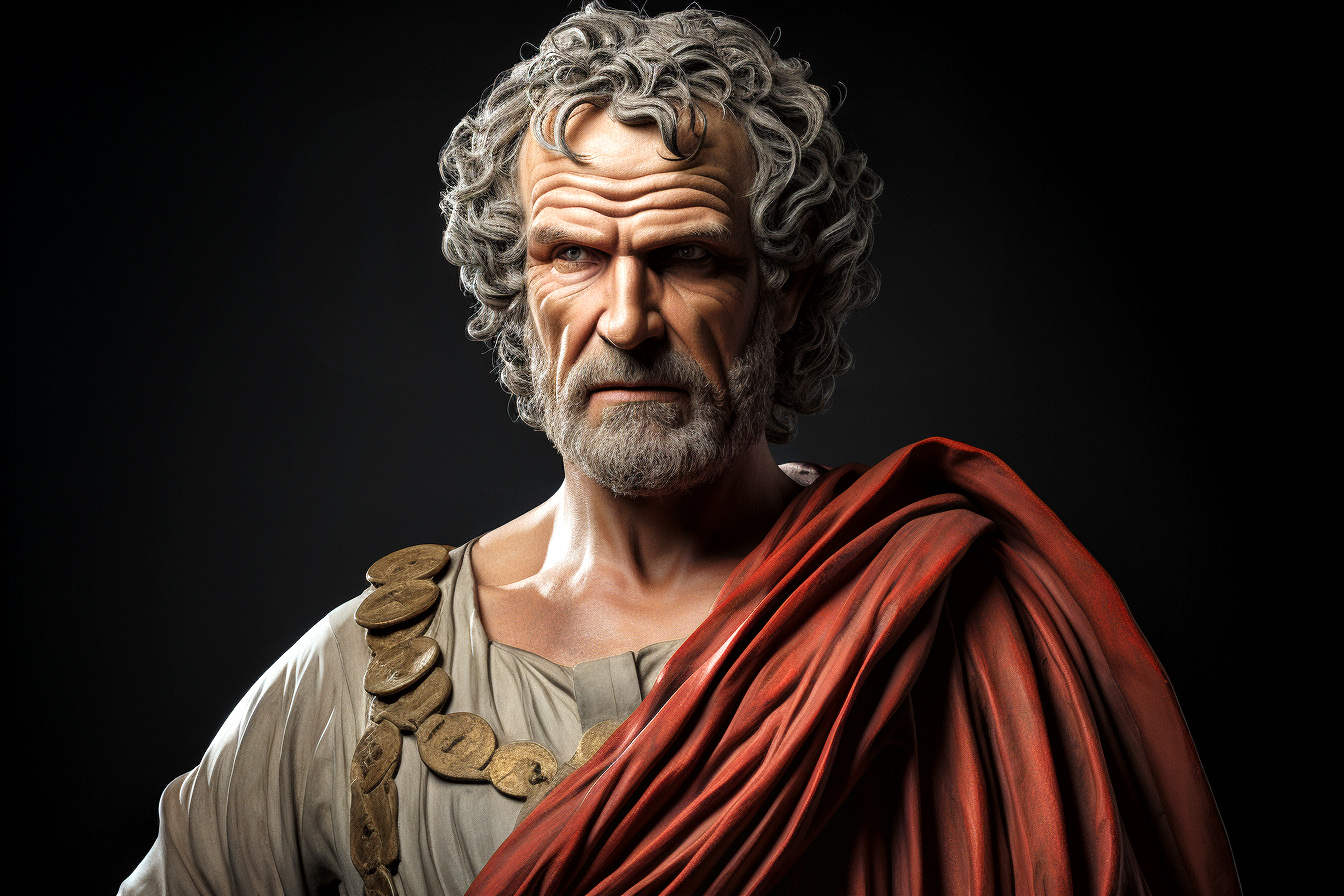Lucius Annaeus Seneca, known simply as Seneca, was a prominent Roman Stoic philosopher from 4 BC to 65 AD. As a young man, he was enamored with philosophy and rhetoric, traveling to Rome to begin his education. Seneca built a reputation as an impressive orator and writer, catching the attention of Emperor Caligula. After being exiled to Corsica on charges of adultery, Seneca spent his time in philosophical study and writing.
Upon returning to Rome, Seneca was appointed a tutor and advisor to Nero when he became emperor. He tried to positively influence the increasingly unstable Nero before eventually falling out of favor and being ordered to commit suicide.
Seneca authored various essays, letters, and tragedies, covering topics like ethics, natural science, politics, and drama. It is in his moral writings, however, that Seneca’s most insightful philosophy shines through. He espoused Stoic beliefs about virtue, wisdom, logic, and living harmoniously with nature. Stoicism calls for overcoming destructive emotions through reason and developing inner resilience against life’s ups and downs.
While the Stoic school declined after the 3rd century AD, Seneca’s ideas revived during the Renaissance period. Today, his teachings resonate with those seeking a deeper understanding of the human condition. Seneca’s thoughts on managing time, emotions, adversity, and relationships seem familiar to modern psychology and self-help.
In this blog post, we will dive deeper into Seneca’s key lessons and their relevance for living an enlightened life even today. The enduring value of his words reveals the timeless wisdom they contain. Over 2,000 years later, Seneca still has something important to teach us.
Lesson 1 – On the Shortness of Life
Key idea: Life is short, so make the most of the time you have…
Example: Seneca points out that people waste much of their precious time on meaningless pursuits like chasing fame or entertainment instead of developing virtue and character. He uses the analogy of a man on his deathbed realizing how he foolishly squandered his life on pointless things when time is our most irreplaceable resource. This teaches us to carefully consider how we spend each day, focusing only on what truly matters.
James constantly felt anxious and overwhelmed with his busy life, split between a demanding job, social obligations, and trying to get ahead. Reading Seneca’s thoughts on time gave him a new perspective. James realized he wasted too much time on other people’s thoughts versus meaningful goals. Instead, he cut out pointless activities and invested time in self-care, family, and lifelong learning. The result was greater happiness and fulfillment.
Lesson 2 – On Anger Management
Key idea: Anger hurts you more than the object of your anger…
Example: Seneca shares techniques like pausing and walking away when anger strikes and contemplating the insignificance of what made you angry. He advises using reason and mindfulness to control this destructive emotion before it controls you. This demonstrates how we can apply logic when anger tries to take over.
Sara frequently lost her temper with family, friends, and co-workers, saying things she later regretted in the heat of anger. Reading Seneca made her realize anger was only hurting her health and relationships. She implemented daily meditation and Seneca’s advice to pause and reflect rationally whenever angry. Sara found these practices allowed her to regain control and let go of irrational emotional outbursts.
Lesson 3 – On Dealing with Adversity
Key idea: It’s not what happens to you but how you respond that matters…
Example: Seneca suggests viewing obstacles as opportunities to practice virtues like courage, wisdom, and patience. His example of enduring exile with strength and refusing to compromise his values is inspirational. Adversity reveals our character.
When tragedy struck, it once would have overwhelmed James. After reading Seneca, he faced the difficulty with more resilience and hope. He knew negative thinking would make things worse. James responded mindfully, courageously accepting his new reality and finding meaning by helping others facing similar challenges.
Lesson 4 – On the Value of Friendship
Key idea: Choose friends wisely and cherish them…
Example: Seneca emphasizes avoiding friends who flatter and compromise your morals. True friendship brings mutual growth, understanding, and fulfillment. His bond with Lucilius demonstrated how a virtuous friend can make you a better person. We should invest in such uplifting relationships.
Seneca’s thoughts on friendship opened Sara’s eyes to why she still spent time with people who caused her stress and anxiety or engaged in unhealthy behaviors like gossip. She realized she needed to end shallow relationships and instead nurture friends who sincerely cared about her well-being. Sara now has a small circle of meaningful friendships based on honesty and growth.
Conclusion
Seneca’s writings offer a wealth of timeless lessons that maintain relevance centuries after his death. From effectively managing time and overcoming anger to building resilience against adversity and nurturing true friendship, Seneca provides theoretical insights and practical advice grounded in virtue, wisdom, and reason.
While some specifics of Stoicism may not translate directly to modern life, many core principles align closely with today’s positive psychology and cognitive therapy. For example, Seneca’s focus on controlling negative thought patterns mirrors modern CBT techniques. His emphasis on mindful awareness of emotions is akin to mindfulness meditation. His encouragement of virtue, meaning, and self-improvement is highly consistent with the goals of positive psychology.
The case studies of James and Sara illustrate the power of putting Seneca’s teachings into practice. Applying his wisdom, they transformed their lives by improving time management, controlling anger, building resilience, and fostering supportive relationships. Seneca gave them perspective and tools to live more virtuously.
There is good reason Seneca remains one of the most widely read and influential Stoic philosophers over 2,000 years after his death. His writings contain far more than abstract musing; they offer practical advice for overcoming destructive emotions, developing strength of character, and finding purpose – challenges fundamentally unchanged for humans over time. Seneca still speaks with power and wisdom for anyone searching for guidance on living well, befitting a great philosopher.
